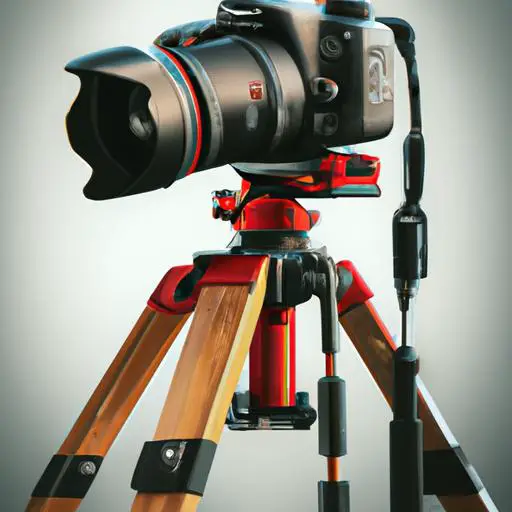Are you considering purchasing a Canon camera? One of the most important aspects to consider are the types of batteries the camera uses.
When it comes to batteries, lithium is often the best choice.
But do Canon cameras have lithium batteries? In this article, well discuss the battery types available for Canon cameras, the benefits of lithium batteries, and the various models that use lithium batteries.
Well also go over how to check a cameras battery specifications, tips for charging the battery, and the expected life of a battery.
Finally, well look at alternatives to lithium batteries for Canon cameras.
Keep reading to find out everything you need to know about Canon cameras and batteries.
Table of Contents
Short Answer
Yes, some Canon cameras do have lithium batteries.
Many of their digital SLR cameras, such as the EOS Rebel T6, use a lithium-ion battery for power.
The Canon PowerShot series also includes models with rechargeable lithium-ion battery packs.
Additionally, some of the Canon mirrorless camera models use lithium-ion batteries as well.
Canon Camera Battery Types
When it comes to powering your beloved Canon camera, there are a few different battery types to choose from.
The most common type is lithium, which is found in the Canon EOS 5D Mark IV and the EOS Rebel T7i.
Both of these models use a lithium-ion battery, which is known for its long-lasting power and reliable performance.
However, not all Canon cameras use lithium batteries.
Some models, such as the Canon EOS 80D, use Nickel Metal Hydride (NiMH) batteries instead.
These batteries are slightly less powerful than lithium batteries, but they still offer reliable performance and a longer life than alkaline or AA batteries.
Finally, some Canon cameras use AA batteries.
This is the most basic type of battery and is usually found in entry-level models.
AA batteries are easy to find and relatively inexpensive, but they dont last as long as the other battery types.
No matter which type of battery your Canon camera uses, it is important to check the specifications before making a purchase.
This will ensure that you get the right type of battery for your camera and help you get the most out of your investment.
Lithium Battery Benefits

The use of lithium batteries in Canon cameras has many benefits.
Lithium batteries are lightweight and compact, making them easy to carry around and store.
They also have a higher energy density than other types of batteries, which means they last longer and can be used for more shots.
Additionally, they are much faster to recharge than other types of batteries, reducing the amount of time a photographer has to wait between shots.
Finally, they are also more environmentally friendly than other types of batteries, as they are not prone to leaking or corroding.
Canon Cameras With Lithium Batteries
When it comes to powering your Canon camera, one of the most popular battery types used is the lithium-ion battery.
These batteries are lightweight, have a high energy density, and can be recharged many times over.
Canon cameras such as the EOS 5D Mark IV and the EOS Rebel T7i use lithium-ion batteries, providing photographers with a reliable and long-lasting power source.
Lithium batteries are a great choice for Canon cameras because they provide quick charging times and are able to hold their charge for extended periods of time.
This makes them ideal for situations where you may need to take many shots in quick succession or in low-light conditions.
Additionally, they are also capable of powering the camera for a long time without needing to be recharged, so you dont have to worry about running out of power in the middle of a shoot.
How To Check Battery Specifications

When shopping for a Canon camera, it is important to check the battery specifications in order to determine which type of battery is required.
This is especially true if you are looking for a model that uses lithium batteries.
Fortunately, most Canon cameras clearly list the type of battery they use in the specifications section.
If you are shopping online, checking the battery type is as easy as scrolling down to the product specification section of the product page.
Here, you should find a section dedicated to the type of battery required for the camera.
If the camera is powered by lithium batteries, it should be clearly stated in this section.
If you are shopping in a store, you can also check the battery specifications.
Many stores will have a display model of the camera that will have the battery type listed on it.
Additionally, the store staff should be able to provide you with the information you need.
Finally, you can also check the Canon website for the information.
On the product page for the specific camera model, you should find a section dedicated to the battery type.
This should list the type of battery required, as well as the number of batteries that will be needed.
By checking the battery specifications before making a purchase, you can ensure that you are getting the right type of battery for your Canon camera.
This will ensure that you are able to use your camera without any problems.
Canon Battery Charging Tips
When it comes to charging your Canon camera battery, its important to follow the manufacturers instructions for optimal performance and safety. Here are a few tips to keep in mind when charging your Canon cameras lithium battery:
- Always use the original charger that came with your camera. Other types of chargers may not properly charge your battery and could even cause damage.
- If you are using an external charger, make sure you are using the correct battery type. Different types of batteries require different charging methods, so be sure to check the specifications of your camera before charging.
- Make sure your battery is completely drained before charging. Overcharging can reduce the life of your battery.
- Avoid charging your battery in extreme temperatures. High temperatures can damage the battery, so its best to store and charge the battery in a cool, dry place.
- Check your battery for any signs of wear or damage before charging. If there are any visible signs of damage, do not attempt to charge the battery.
Following these simple tips will help ensure that your Canon cameras lithium battery is properly charged and ready to go when you need it.
If you have any questions about how to charge your specific camera model, contact Canon customer service for further assistance.
Battery Life Expectancy

When it comes to digital cameras, the type of battery used can have a huge impact on the overall performance and lifespan of a camera.
Lithium batteries are known for their longer life expectancy compared to other types of batteries, making them a popular choice for digital cameras.
Canon is no exception, with a variety of their cameras using lithium batteries.
For example, the Canon EOS 5D Mark IV and the EOS Rebel T7i both use lithium batteries.
When shopping for a Canon camera, its important to consider battery life expectancy.
Lithium batteries are known to last longer than other types of batteries, and can provide up to 500 shots on a single charge.
Thats much more than a camera using NiMH or AA batteries, which typically only last around 200 shots on a single charge.
For photographers who are looking to get the most out of their batteries, its important to choose a Canon camera that uses lithium batteries.
Not only do they last longer, but they can also provide more reliable performance in extreme temperatures.
This makes them ideal for photographers who often find themselves out in the elements.
In addition to the battery life expectancy, its also important to consider the other features of the camera.
For example, the Canon EOS 5D Mark IV has a full-frame sensor, allowing for greater depth of field and more detailed images.
It also features 4K video recording, making it a great choice for serious videographers.
Ultimately, choosing the right Canon camera for your needs is an important decision.
Its important to consider the battery type, battery life expectancy, and other features when making your decision.
For photographers who want reliable performance and long-lasting batteries, Canons selection of cameras with lithium batteries is a great option.
Alternatives To Lithium Batteries For Canon Cameras
When it comes to powering Canon cameras, lithium batteries are often the go-to choice.
However, there are other battery types available for Canon cameras that can provide excellent performance and reliability.
NiMH (Nickel-Metal Hydride) batteries are one of the most common alternatives to lithium batteries for Canon cameras.
NiMH batteries are rechargeable and tend to last longer than traditional AA batteries.
They are also more lightweight, making them ideal for travel and outdoor activities.
AA (Alkaline) batteries are another popular choice for Canon cameras.
They are widely available and are relatively inexpensive.
However, AA batteries dont last as long as NiMH or lithium batteries.
They are also heavier and bulkier than the other types of batteries.
Finally, some Canon cameras may also support the use of a USB-C power source, such as a laptop or an external battery pack.
This can be an excellent choice for people who want to maintain a consistent power supply for their camera.
However, it is important to check the specifications for each model to make sure it is compatible with USB-C power sources.
When choosing the right battery type for your Canon camera, it is important to consider the battery life, weight, and convenience of each option.
Lithium batteries are often the go-to choice for Canon cameras due to their long life and lightweight design.
However, there are other battery types available that may be better suited to your specific needs.
Final Thoughts
In conclusion, Canon cameras offer a variety of battery types, with some models using lithium batteries that come with many benefits, such as a long life expectancy and easy charging.
When shopping for a Canon camera, make sure to check the battery specifications, as this can make a big difference in the performance and longevity of the device.
If lithium batteries are not available for your model, consider alternative battery types to ensure your Canon camera is always powered up and ready to go.

